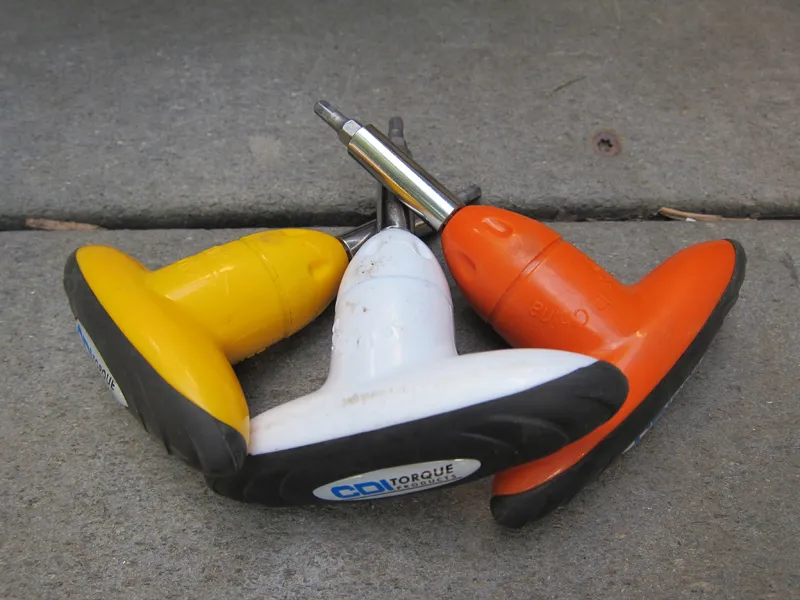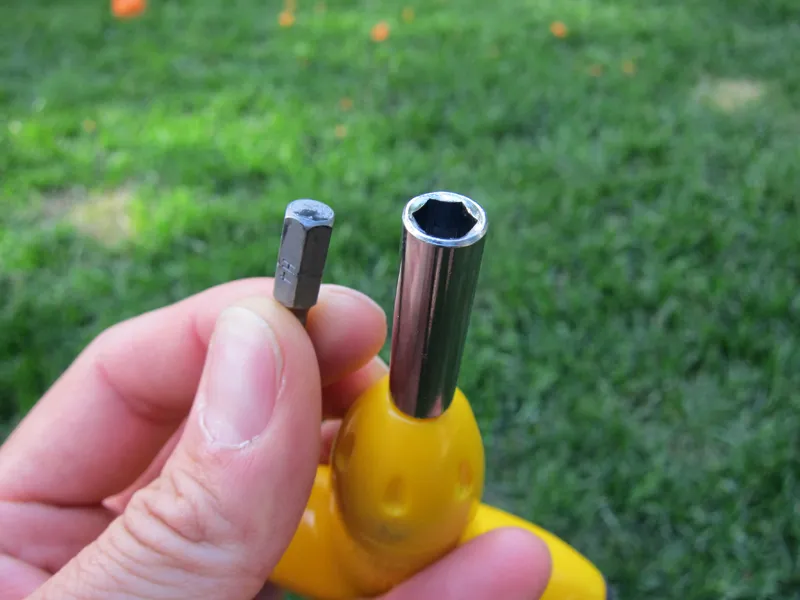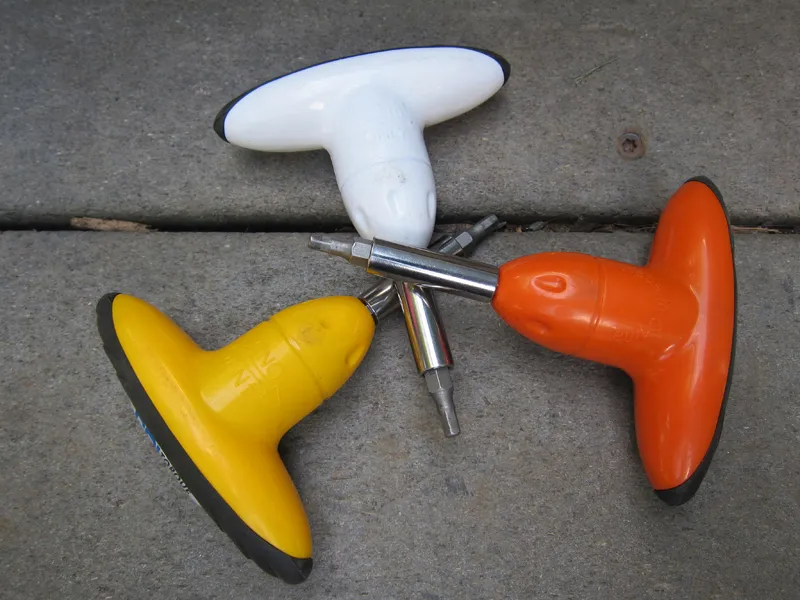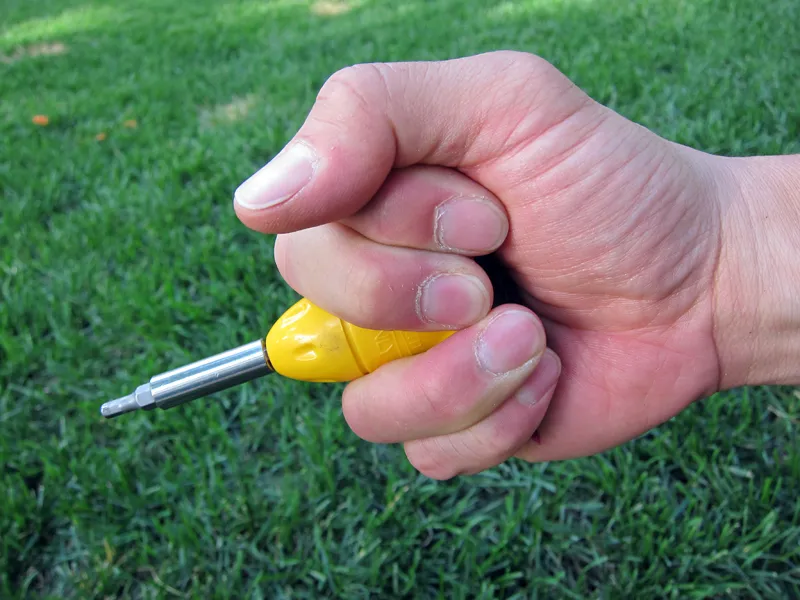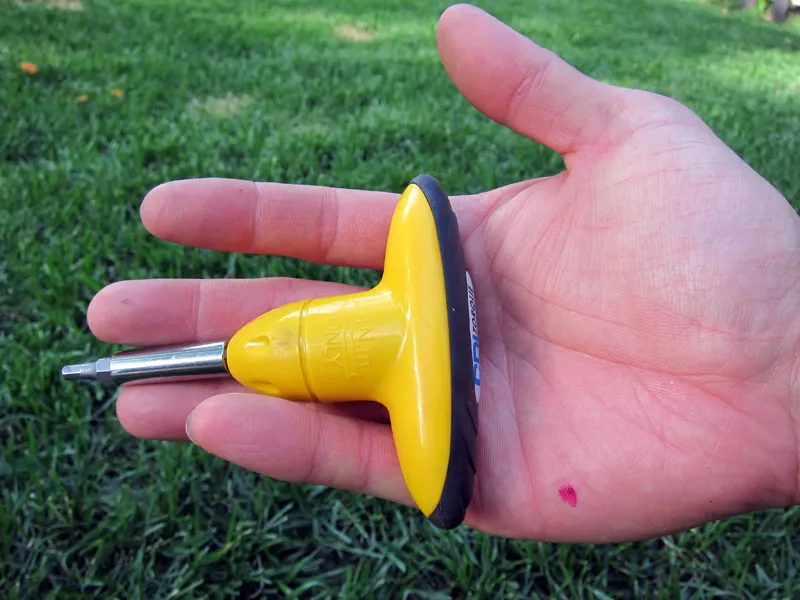Torque wrenches are a must-have for home and shop mechanics who regularly deal with lightweight frames and components. Virtually all torque wrenches rely on user knowledge to work properly. It's up to the person holding the tool to know to stop applying pressure once they receive an alert that may come via a click, beep, needle indicator or otherwise.
The Preset T-Handle torque wrenches from CDI Torque – a division of Snap-On – on the other hand, are truly idiot-proof. They use a clever torque-limiting clutch that simply won't allow the user to apply any more force than intended, no matter how much you continue to twist the thing. This contrasts with other wrenches where the only limiting factor is your arm strength. Much like fuel caps on newer cars, CDI's T-Handle will click once the intended torque is reached – and if you continue twisting, just keep repeatedly, benignly clicking – thus almost completely taking user error out of the equation.
As CDI's Glenn Kalnins puts it: "If you take the 5Nm [wrench], turn it and get one click, that equals 5Nm. Take it and have it click 10 times, you still only get 5Nm out of the tool." In fact, we discovered during testing that about the only way to misuse the CDI T-Handle is to apply it to a fastener with left-hand threads. In order to prevent damage to the tool, Kalnins recommends using the T-Handles solely for final tightening of fasteners and definitely not for breaking them loose.
The big, rounded handle fits comfortably in your hands and the magnetic socket allows for quick bit swaps (additional bits aren't included but a 4mm one comes standard). While the torque settings aren't adjustable, CDI offer the T-Handle in 4, 5 or 6Nm options to suit most needs, with the 5Nm wrench being most common for stems and the like. Color-coded handles helped us pick up the right wrench off the work bench and the numerical rating is molded right into the handle. All the same, we'd rather CDI mark the handles with big color-contrast numbers too, since in most people's brains, 'yellow' doesn't automatically equate to '4Nm'.
CDI include a calibration certificate on the back of each T-Handle package and Kalnins says each wrench should hold its setting for 5,000 clicks – or about a year of regular use in a shop environment – after which it'll start clicking at progressively lower torque values. At that point, it should be sent in for recalibration, though given the nominal cost of the tool, we're guessing most users will just get a new one.
Speaking of cost, CDI's US$30 T-Handles are roughly 50 percent more expensive than the more common TorqKey options marketed by Ritchey, Bontrager and others. The CDI version is an indisputably nicer tool, though. Home users with just one or two bikes to service are likely to take a lot longer than a year to hit 5,000 clicks so that additional cost should be amortized over a pretty significant lifetime.
